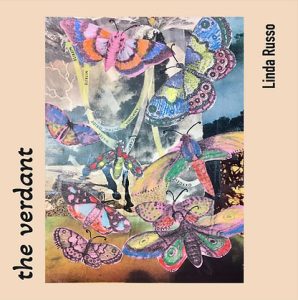Watershed – 2007
Volume 30 Number 2
Spring 2007
Biannual
Rachel King
For their 30th anniversary edition, Watershed’s editors decided to choose one selection from each of the years 1977-2007 and arrange these selections in chronological order. While reading these pieces, I traveled both through the history of Watershed and also through the history of our nation and the world. Many – though definitely not all – of the poems respond to or refer to current events. For example, Greg Rappleye’s “Letters to Yeltsin” is a response to NPR’s statement that Boris Yeltsin suffers from weariness: “Word arrives in the steamy depths / of the American summer, / the torpor so general / I cannot rise from my couch. / I share your struggles, comrade.”
For their 30th anniversary edition, Watershed’s editors decided to choose one selection from each of the years 1977-2007 and arrange these selections in chronological order. While reading these pieces, I traveled both through the history of Watershed and also through the history of our nation and the world. Many – though definitely not all – of the poems respond to or refer to current events. For example, Greg Rappleye’s “Letters to Yeltsin” is a response to NPR’s statement that Boris Yeltsin suffers from weariness: “Word arrives in the steamy depths / of the American summer, / the torpor so general / I cannot rise from my couch. / I share your struggles, comrade.”
The current selections for Spring 2007 are all poems except for one flash fiction story. The flash fiction, “What We Own” by Chris Elliot, is about a boy who must choose to either forgive or to enact revenge on his mother. He chooses the latter. Retrospectively realizing he’s made the wrong choice, he wants to whisper to the memory of his boy self confronting his mom “that all we can call our own in this life are our actions to each other.” Heaven forbid that all fiction be this didactic, but I appreciate a piece like this once in a while: one that doesn’t leave you guessing as to the message of the author.
Although I think “What We Own” is the gem of the current work in this issue, the poems are pretty good, too. Although I had no favorite or one I think is the best, a handful of them contain very well-worded descriptions. For example, in Suzan Jantz’s “Working the Graveyard Shift with the Women at the Bakery,” she describes her job: “Awkward, my own foreign body freezes / As packages begin to collide / In front of me, rear-end each other / Like speeding cars stacking up / Blindly on the freeway in fog.” And in Laura Jew’s “When We Go,” a lover asks her love an important question: “Do you believe in the afterlife? / I ask, shrouded in cotton violet, / worn and cuddled comforters. / You rub your cheek / further into the pillow as you blink / slowly, look back at me.”
The new work is good, but this specific issue is most worth the reading for the whole created by Watershed’s best selections from the past thirty years.
[www.csuchico.edu/engl/wshed]




